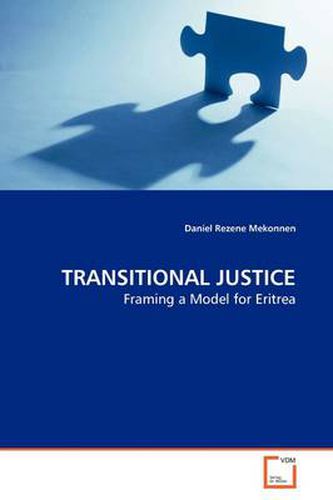Readings Newsletter
Become a Readings Member to make your shopping experience even easier.
Sign in or sign up for free!
You’re not far away from qualifying for FREE standard shipping within Australia
You’ve qualified for FREE standard shipping within Australia
The cart is loading…






This title is printed to order. This book may have been self-published. If so, we cannot guarantee the quality of the content. In the main most books will have gone through the editing process however some may not. We therefore suggest that you be aware of this before ordering this book. If in doubt check either the author or publisher’s details as we are unable to accept any returns unless they are faulty. Please contact us if you have any questions.
International crimes, such as, crimes against humanity, war crimes and the crime of aggression, have been perpetrated in Eritrea since 1991 in an alarming manner. Some of these have been perpetrated under premeditated government plan of persecution, portraying a widespread and systematic policy of repression. As a result, some high-ranking government officials can be tentatively identified as the most responsible perpetrators, bearing individual criminal responsibility for grave violations of international law. To end the culture of impunity, international criminal justice, administered by the International Criminal Court, foreign municipal courts, or national or mixed tribunals, should be instituted immediately. However, in the event of a negotiated and peaceful political transition, conditional amnesty administered by a democratically constituted truth and reconciliation commission is also regarded as an acceptable option. The book highlights that any model of transitional justice for Eritrea should be based on these assumptions. Academics, policymakers and practitioners working in the area of human rights, transitional justice and international criminal law may find it relevant.
$9.00 standard shipping within Australia
FREE standard shipping within Australia for orders over $100.00
Express & International shipping calculated at checkout
This title is printed to order. This book may have been self-published. If so, we cannot guarantee the quality of the content. In the main most books will have gone through the editing process however some may not. We therefore suggest that you be aware of this before ordering this book. If in doubt check either the author or publisher’s details as we are unable to accept any returns unless they are faulty. Please contact us if you have any questions.
International crimes, such as, crimes against humanity, war crimes and the crime of aggression, have been perpetrated in Eritrea since 1991 in an alarming manner. Some of these have been perpetrated under premeditated government plan of persecution, portraying a widespread and systematic policy of repression. As a result, some high-ranking government officials can be tentatively identified as the most responsible perpetrators, bearing individual criminal responsibility for grave violations of international law. To end the culture of impunity, international criminal justice, administered by the International Criminal Court, foreign municipal courts, or national or mixed tribunals, should be instituted immediately. However, in the event of a negotiated and peaceful political transition, conditional amnesty administered by a democratically constituted truth and reconciliation commission is also regarded as an acceptable option. The book highlights that any model of transitional justice for Eritrea should be based on these assumptions. Academics, policymakers and practitioners working in the area of human rights, transitional justice and international criminal law may find it relevant.